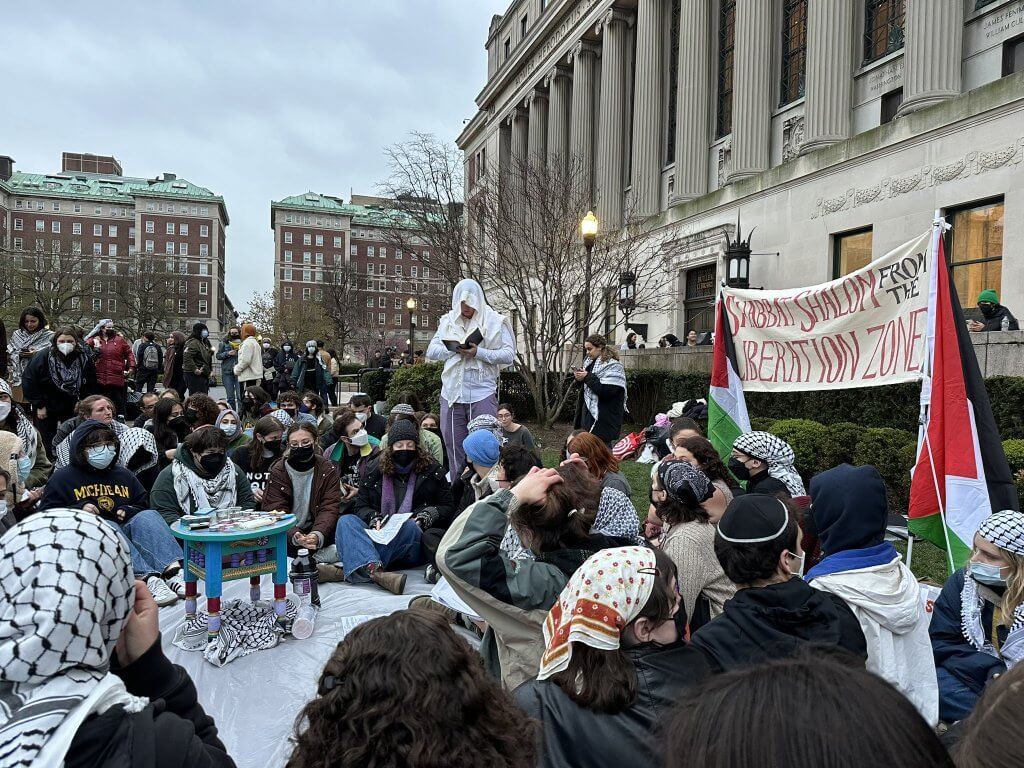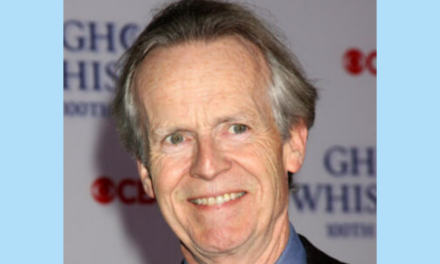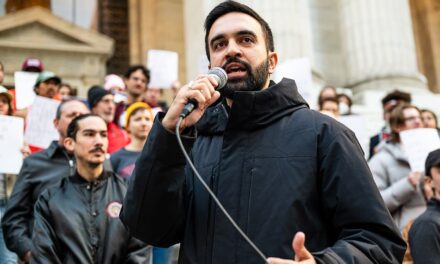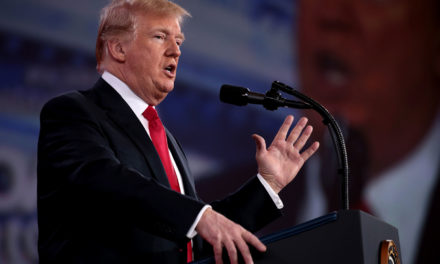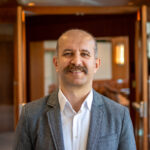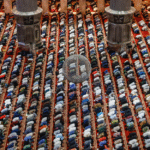What is the mainstream U.S. media’s greatest single distortion about the protests at Columbia University and elsewhere? Here’s the winner so far: the media is ignoring the fact that Jewish students are participating in the pro-Palestinian protests, and therefore they might have valuable things to say about the charges of “rising antisemitism” on their campuses. Their comments would have been particularly pertinent because just last week, Columbia’s president had been interrogated by a hostile committee in the House of Representatives, where she seemed to concede that antisemitism was a real danger.
Let’s start with the New York Times reports in this morning’s print edition. Both articles hide pro-Palestinian Jewish students. The main article, by Sharon Otterman and Stephanie Saul, quotes two Jewish Columbia students, who were apparently unsympathetic to the protest but had nothing to say about alleged antisemitism. Alongside it was an additional report, by Troy Clossen, which reported the rising pressure against President Minouche Shafik and included this clever biased sentence:
“Some Jewish students and other have said they appreciated the response [the police crackdown], while some left-leaning faculty members, students, free-speech advocates and others have said it was too harsh.”
The insinuation is clear; Jewish students are not among the protesters. But how could the Times ignore photographs like yesterday’s “Shabbat Shalom from the Liberated Zone at Columbia University.” Look closely at the photo and you will see students who are wearing kippahs sitting alongside students with keffiyehs. Ignoring them — not interviewing them — looks like censorship, not an accident.
The rest of the mainstream media also avoided this central question. National Public Radio only reported the facts of the Columbia protest narrowly; the Washington Post did the same. CNN was slightly better. Its on-air report was short and confusing, but a hint of the truth appeared in a print article on its online website. That report did quote “Ry,” a Columbia senior who declined to reveal his last name, but who said he was a member of Jewish Voice for Peace and that he had participated in the nonviolent tent protest: “We as students are using our privilege to stand for people who have been oppressed for far too long and we hope other universities take the call and do the same.”
Normally, identifying people who you interview by their ethnic, religious, or racial background is wrong. These days, though, strong charges of antisemitism are being thrown about on U.S. university campuses and you have to ask those questions so that those of us who are not connected to college life can start to find how much is true and how much is exaggeration.
Let’s turn now to the second-place finisher in the media distortion sweepstakes: the failure to report on how powerful wealthy donors are almost certainly influencing recent university policies. This angle doesn’t just apply to Columbia. On April 15, the University of Southern California abruptly announced that it was canceling its scheduled student commencement speaker, a brilliant young American of Muslim background named Asna Tabassum, who had spoken out for Palestinian rights online. Both the administrations at Columbia and Southern Cal said “safety” is mainly what guided their recent decisions. Columbia said the protesters constituted “a clear and present danger” — an allegation that a senior New York police official, John Chell, denied. (The CNN online report quoted Chell as saying: “The students that were arrested were peaceful, offered no resistance whatsoever, and were saying what they wanted in a peaceful manner.”) Critics of the Southern Cal decision pointed out that the university had hosted controversial speakers before, like right-wing extremist Milo Yiannopoulos, providing additional security.
The media’s failure to report on donor influence is somewhat surprising. In the immediate aftermath of October 7, there was no shortage of announcements that rich pro-Israel donors were cutting back or ending their large gifts. For instance, Victoria’s Secret billionaire Leslie Wexner cut his ties to Harvard, and Ronald Lauder, the Estée Lauder cosmetics heir, paused his giving to U Penn. But such reports have died down recently. Of course, it’s possible that all the angry donors have acted already. Still, though, there’s no doubt that university presidents would like to get the billionaires like Wexner and Lauder writing big checks again.
In the University of Southern California case, mainstream media failure was particularly glaring. Surely there are wealthy pro-Israel alums in the Los Angeles area, who probably wouldn’t want to see Tabassum include even a mild pro-Palestinian message into her speech, which was supposed to be delivered to an audience of 65,000 people. But the once impressive Los Angeles Times must have fallen on evil times, because its report never even raised the donor angle.
